Live For This: CANYON//SRAM Racing
The Biggest Stage: CANYON//SRAM Racing Prepares for Le Tour de Frances Femmes avec Zwift
- Words: Peter Nicholson
- Video: Brian Vernor
- Photos: Thomas Mayheux, Beth Duryea, Peter Nicholson
There just is nothing like it. The Tour de France stands apart from all other races in cycling with 100 years of history, the crowds, the spectacle, the climbs. And, though there have been a few short-lived trials, in the modern era it was only for the men. But after a scintillating debut in 2022, the Tour de France Femmes avec Zwift returns, and the women of CANYON//SRAM Racing are scouting stages for the 2023 event, hoping to win the Teams Classification again and improve on leader Kasia Niewiadoma’s 3rd on final GC.
We’re in Cahors, France, talking with Kasia and young climbing phenom Ricarda Bauernfeind, who took her first Pro Tour podium this season at La Vuelta Femenina. Today the team will ride the final 120km of what will be Stage 4 the Tour de France Femmes: tomorrow they ride the final 70km of the decisive Stage 7, tackling the legendary Col d’Aspin before a summit finish on the iconic Col du Tourmalet.
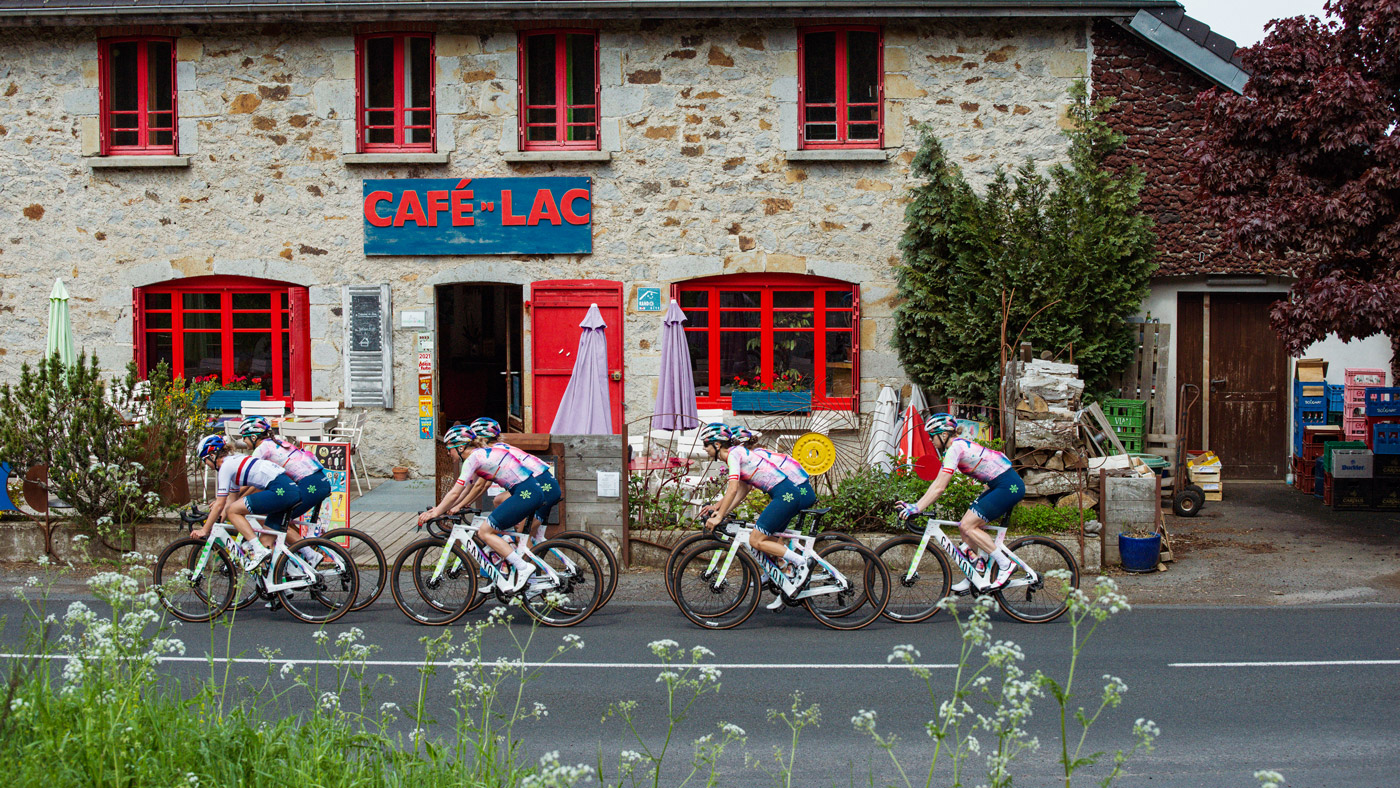
“Oh, I love to climb and also do longer climbs like the Tourmalet,” says Ricarda as we chat about what lies ahead. “And also here in this area, every time you're climbing, the view from the top of the mountain is so different it’s amazing. Of course, you don't have time during the race to enjoy everything. But yeah, it's even nicer to do it now.”
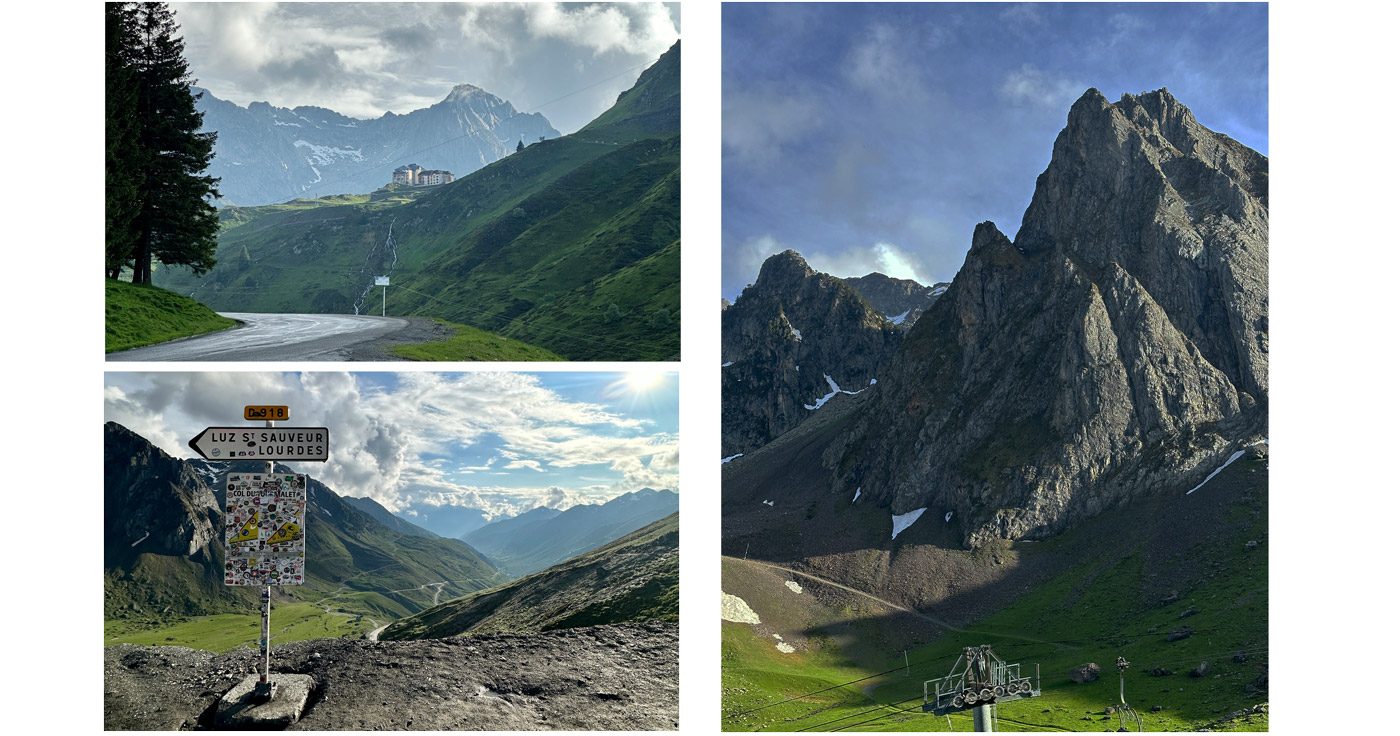
At 17km long, the Tourmalet is a beast of a climb, that winds up out of the valley, through the ski resort of La Mongie, before finally finishing with 5km at an average of 10%. Even for the very best climbers in the world, it can take close to an hour riding full-gas. “Riding the longer climbs, I would say the pain of the legs is for everyone the same. And in the end, the decision is made in the mind. So yeah, I always say your mind is stronger than your body, so… “ Ricarda trails off, leaving the thought hanging. Later that day, during the recon of Stage 4, she would climb off her bike and get into the team car that followed the riders, a knee injury reminding her that sometimes the body does have the upper hand. But she was back on the bike the next day, speeding up climbs ahead of her teammates.
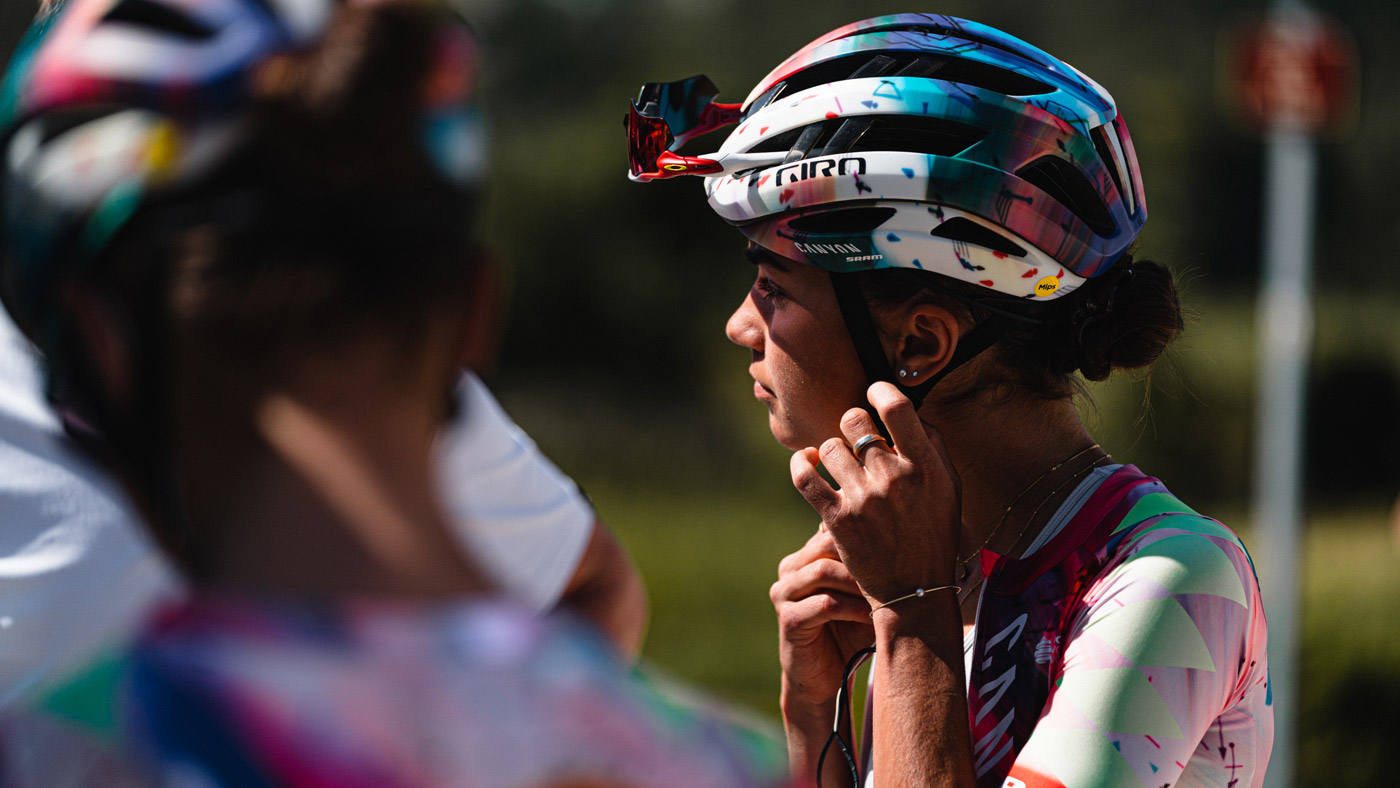
“Generally speaking, cycling is very self-centered sport. Even though it's a team sport, you always have to think about yourself: how much you train, how much you rest, how much you eat, how much you recover, and over time you become kind of burned out from that function. Because we are not made to be only thinking about ourselves.” Ricarda’s veteran teammate Kasia Niewiadoma is sharing insights into the paradox of cycling, a sport where only one rider wins but cannot do so without the crucial help of her team."
“People are also givers and you can be doing it only for that long to be so obsessed with yourself. But then you realize that that leads you to unhappiness. And I felt like thinking only about my shape and my performance made me feel unhappy because I felt that I was too selfish and I didn't want to be in that role anymore because people are also givers. Being in the position where people want to get help from me is a privilege, so I want to use it as best as I can.”
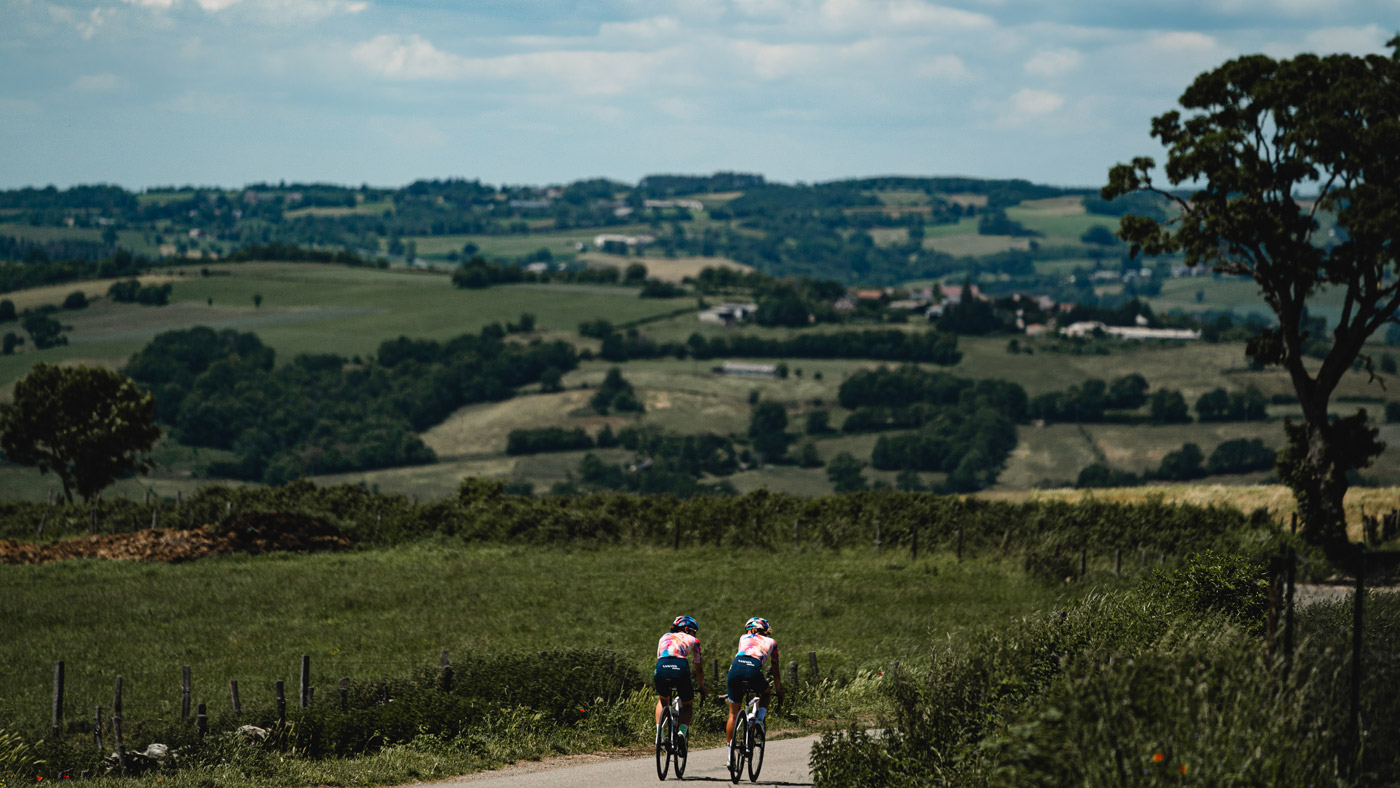
“Anytime I'm a leader of the race and our group is divided into more experienced riders and girls that just stepped into the world tour racing during the race… I feel like that's the biggest barrier for them when they come into the team with the experience riders and they feel that they're not enough. So that's the first step to like make them feel that we are all equal, that we are all the same and we have the same goal. And then you just like help them from there.”
Kasia has an impressively long list of results at the biggest races in the world, yet even for her the Tour de France is something different, something special. “The Tour de France Femmes Avec Zwift is different from other races because there's so much more media attention. [It] is just the history is such an iconic race that people want to be the part of it. People want to be seen on TV even though they're just like jumping on the side of the road. But maybe it's about the perfect timing because it takes place in the summer time, so everyone takes their time off and they can actually take their families on this side of the road and watch the race.”
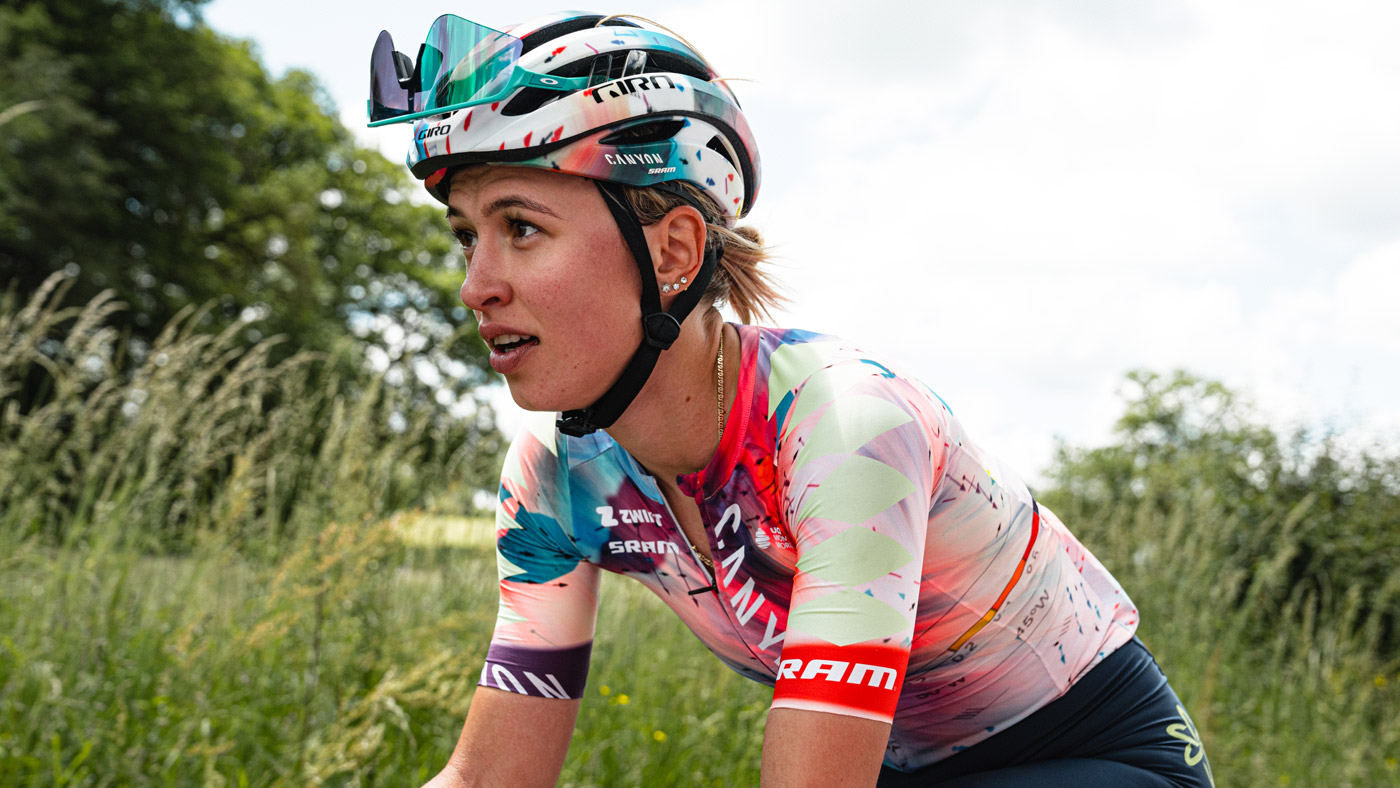
"A legendary climb like the Tourmalet provides the kind of setting for the spectacle only le Tour can provide. “Any time we race in the big iconic climbs, we just know that there is going to be a massive crowd. And in some ways, it's very uplifting and motivating. Or you just forget about your own feelings or you just go with the flow. For the most part, I would say that the biggest work is being done before race started.”
“But somehow the whole fatigue, the mental fatigue and physical fatigue are being taken away from you because you just like the races. They (races are the) easiest part, I would say, from the whole process of preparation, because you do the hard work for four or five weeks before the race and race should be like a cherry on the cake, you know.”
When we are out on the climbs, watching these fastest women in the world glide seemingly without effort up impossibly steep passes, laughing and chatting in between climbs, racing each other down the descents at terrifying speeds, one thing is clear: they are not like us mere mortals. Riders at this level are a different breed, dedicating their entire lives to live for this. Yet despite this exceptionalism, at the end of the day, their love for the pure act of cycling is one that is so familiar to anyone who rides a bike.
“I think I will never stop riding my bike,” says Kasia. “Because cycling or just riding a bike is my passion. I love it. It’s something I do with my partner. Any time I have time off, for example, it's not about pushing hard, but it's about being outside. It’s something that makes me feel free and happy.”


